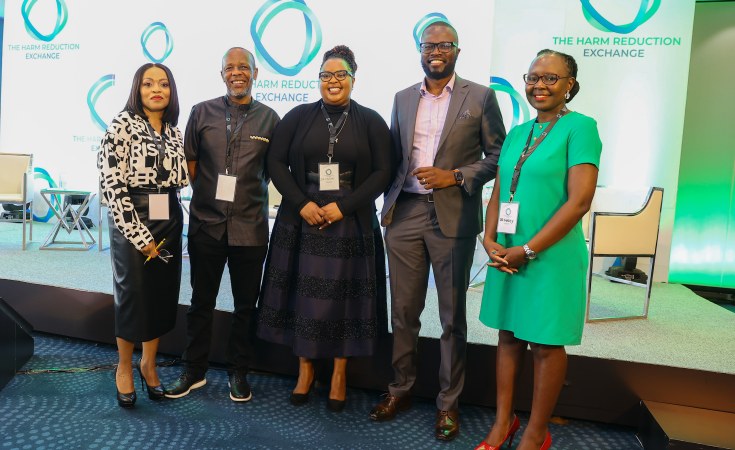The late South African Philanthropist and clergyman, Archbishop Desmond Tutu once said, “If you are neutral in situations of injustice, you have chosen the side of the oppressor.” With mounting evidence showing that the world loses approximately 8 million people annually to combustible cigarettes, there is a need for evidence-based scientific reporting by the media to dispel some of the myths associated with Tobacco Harm Reduction (THR) efforts at a global scale.
Over the years, numerous tobacco harm reduction innovations have been developed to reduce the risk of disease and mortality associated with smoking combustible tobacco. However, there have been efforts to derail the adoption of novel nicotine products that have been proven by science to be effective in reducing harm.
In many instances, the media has been used to demonise Tobacco Harm Reduction efforts with the recent development being the EVALI issue in 2022. EVALI stands for E-cigarette or Vaping Use-Associated Lung Injury and according to studies that were carried out then, e-cigarette use or vaping, was associated with a spike in lung injury infections in the Delaware Valley, United States.
Although scientific data later failed to find a correlation between vaping and lung injury conditions, the damage had already been done, with some smokers who had switched to non-combustible nicotine products moving back to smoking combustible tobacco.
Responsible journalism in the midst of mounting opposition against tobacco harm reduction interventions could go a long way in improving the health outcomes of smokers. African journalists recently convened in Nairobi, Kenya for the 3rd Edition of The Harm Reduction Exchange. The meeting ran under the theme “Amplifying the Voice of Harm Reduction Advocacy Across Africa,” and sought amongst other things to sensitize journalists on the topic.
Speaking during the exchange, Integra Africa Principal Dr. Tendai Mhizha emphasized the role that journalists and media houses should play in handling misinformation and disinformation in tobacco harm reduction discussions.
“The media play a critical role in accelerating the progress towards the full uptake of harm reduction strategies in all spheres of health across the continent. With the advent of technology, we find that misinformation and disinformation are becoming increasingly prevalent with the democratisation of the information space. Moving forward, there is a need to ensure that stakeholders are well informed with current and relevant information about the science, the changes that occur and how we can advance towards a smoke-free world,” Dr. Tendai said.
She added that raising awareness for tobacco harm reduction (THR) as a public health strategy encourages adult smokers who are unable or uninterested in quitting tobacco altogether to migrate to non-combustible product alternatives. THR has the potential to bring about one of the greatest public health achievements of our time.
While the media play a crucial role in informing, entertaining and educating, in public health, media ought to be the voice of reason and report factually to improve the health and well-being of people in general.
AllAfrica Global Media Group Executive Chairperson, Amadou Mahtar Ba said while neutrality and objectivity are the cornerstones of journalism, on matters of health, life and death the media should be on the side of the people.
“Take an example of a situation whereby human rights are being abused and people are being killed. Do you remain neutral or do you take a side? The same applies to Tobacco Harm Reduction. The evidence is there that millions of people are dying from combustible cigarettes every year and yet there are alternatives that could reduce the harm and save people’s lives,” he said.
Several African countries have already implemented THR policies and programs. For example, South Africa has legalised the sale of e-cigarettes and heated tobacco products. Kenya has also taken steps to regulate THR products and is considering legalising e-cigarettes.
Academic and Malawian Author, Mr. Chimwemwe Ngoma said the media have always been playing a harm reduction advocacy role in the public healthcare sector.
“Within HIV and AIDS, the media championed the importance of condoms and PrEP ( Pre-Exposure Prophylaxis). In road traffic safety, the media influenced the establishment of speed limits, alcohol intake limits and seatbelt laws. On the environment, the media advocates for environmental conservation and advocates for recycling programs, pollution control measures, and sustainable resource management. In Tobacco Harm Reduction, the media have been reporting on tobacco controls and the FCTC, article 1d,” said Ngoma.
He however added that disseminating conflicting and manipulated information in the media should be viewed as a threat to public health.
“New technologies and emerging health issues are prone to misinformation, the media's potential for misinformation. We have witnessed conflicting information from authorities on the safety of electronic cigarettes. The lack of consensus among health officials could have public health consequences, possibly resulting in the formulation of uninformed policies. Early misinformation on the EVALI (E-cigarette or Vaping product use associated Lung Injury) was prevalent in the USA.”
He said there is a need for balanced reporting - views of all relevant stakeholders. There is also a need for evidence-based communication and ethical reporting as this can help eliminate misinformation and prejudice.
Irresponsible journalism erodes media credibility as it gives fuel to conspiracy theorists and disseminators of propaganda and lies to dominate the media space and the Internet with misinformation (wrong information provided inadvertently) and disinformation (deliberately distorted information spread to shape a narrative).


